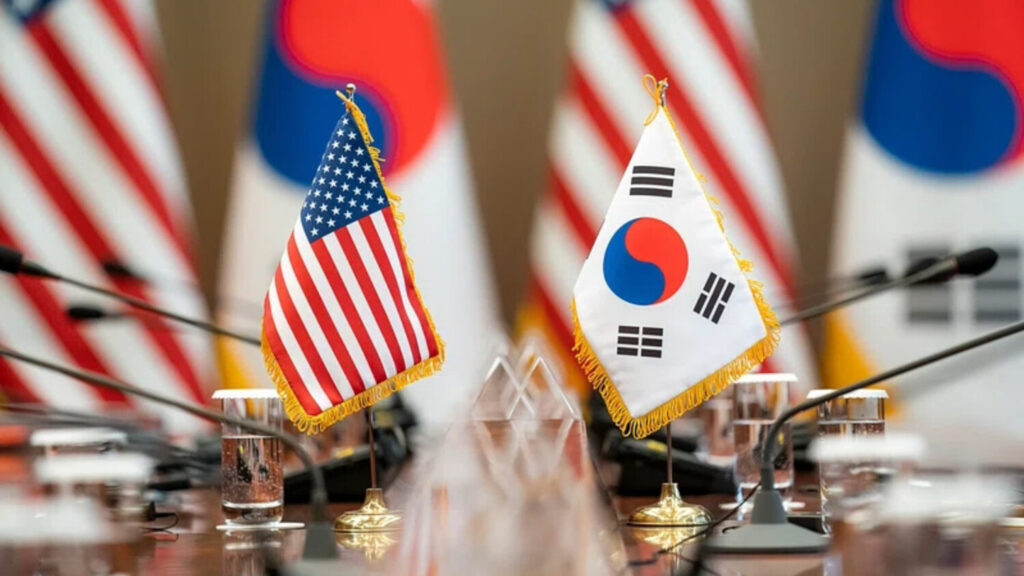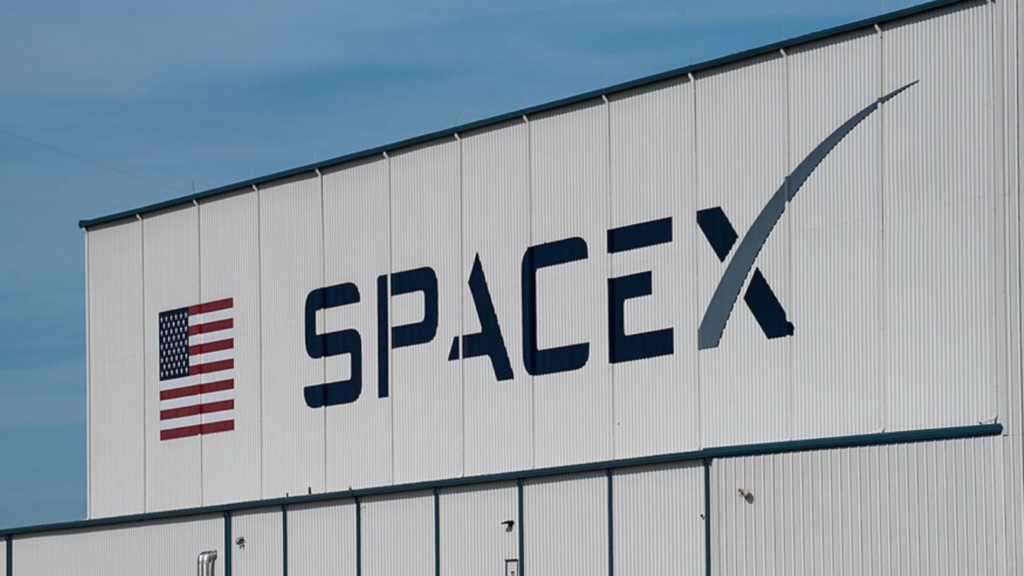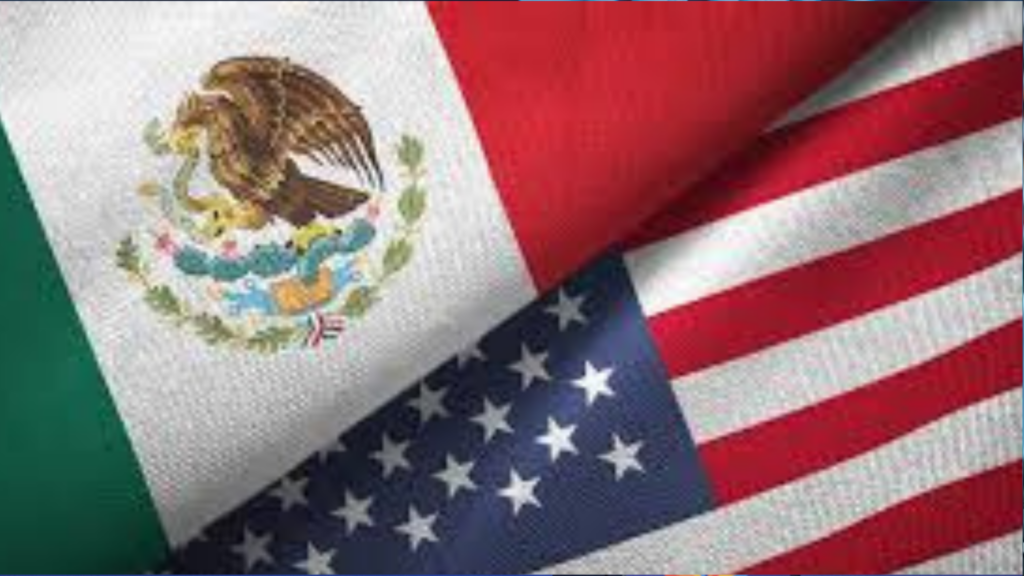American-Japanese-Korean Strategic Trilateral Pact: Alliances in Alignment?
A few days after Exercise Freedom Edge, US Secretary of State Marco Rubio, South Korean Foreign Minister Cho Hyun and Japanese Foreign Minister Iwaya Takeshi met in New York on the sidelines of the UNGA meeting on 22 September. They issued a joint communiqué (US State Department, 2025) underscoring their shared commitment to regional stability and prosperity in the Indo-Pacific. The joint statement highlighted concern over Pyongyang’s advancing nuclear and missile programmes, including recent tests and potential arms transfers to Russia. While raising concerns about China’s strategic manoeuvres in the Taiwan Strait and East China Sea, the joint statement further reiterated the US ironclad commitment to the defence of Japan and the Republic of Korea (ROK), backed by nuclear and conventional capabilities.
Trilateral Pact on the Move
The trilateral partnership between Japan, the Republic of Korea and the United States has become a cornerstone of the Indo-Pacific security architecture. The year 2025 witnessed an upward trajectory in trilateral cooperation through multiple foreign ministerial meetings and joint exercises.
At the Munich Security Conference on 15 February 2025 (Ministry of Foreign Affairs of Japan, 2025), foreign ministers of the United States, Japan and South Korea held a trilateral meeting, the first under the new Trump administration, to discuss security and economic cooperation. Calling it an “unshakeable trilateral partnership” (State Magazine, March 2025), the ministers resolved to expand cooperation beyond diplomacy and security to include economic security, supply chains and collaboration on energy and critical technologies such as semiconductors and advanced technology.
Six weeks after the Munich Security Conference, diplomatic representatives of the US, Japan and South Korea held a trilateral meeting in Brussels on 3 April 2025 (Ministry of Foreign Affairs, Republic of Korea, April 2025), on the sidelines of a NATO Foreign Ministerial Meeting. This gathering was particularly significant as it occurred a day after US President Donald Trump announced new tariffs on all US imports.
In May 2025, the US, Japan and South Korea formalised a trilateral maritime cooperation framework (Japan Coast Guard, 2025) involving joint coastguard exercises and capacity-building support for Southeast Asian partners. This followed the 2024 formalisation of trilateral coastguard cooperation through a Letter of Intent based on the “Spirit of Camp David” joint statement from the August 2023 Trilateral Summit. The three countries subsequently agreed to provide joint capacity-building assistance to ASEAN and Pacific Island countries, with joint training designed to address multifaceted maritime challenges.
Various initiatives spanning people-to-people, business-to-business and military-to-military ties such as the recent Tri-CHOD meeting and the Osaka Young Leaders Trilateral Summit (US Embassy and Consulate in Japan, 2025) form part of a broader institutionalised cooperation framework, with commitments to hold such meetings regularly.
In January 2025, the United States, Japan and the Republic of Korea (South Korea) conducted their first trilateral bomber escort flight of the year, indicating close military cooperation and commitment to a free and open Indo-Pacific. Trilateral coastguard exchanges under the Trilateral Maritime Security Framework further enhance regional incident-response capabilities.
Insights on the Pact
A closer view of South Korean media and think tank discussions reveals a deeper introspection of the alliance’s implications in the political, diplomatic and security arenas, considering the existing geopolitical challenges.
An opinion piece in The Korea Times (The Korea Times, 2025) warns that the US-Japan-South Korea alignment risks strengthening trilateral relations among their former communist neighbours – Russia, China and the DPRK – across the Indo-Pacific and beyond. A Chatham House report (Chatham House, 2025) similarly recommends “quiet, painstaking and consistent” diplomacy to prevent collective defence integration among Russia, China and North Korea. The report further raises concerns about President Trump’s longstanding view of alliances as dependencies and suggests that his America First agenda could hinder trilateral cooperation. It states explicitly: “How Trump handles North Korea, China and Russia could also undermine trilateral cooperation.”
The Chatham House report emphasised the important fact that strong bilateral ties between Seoul and Tokyo are central to the trilateral framework. Working towards establishing constructive relations between South Korea and Japan is continuously on the foreign policy agenda of the close neighbours in East Asia. Former South Korean Minister of Foreign Affairs Cho Tae-yul (Nippon, 2025), in a statement echoing former Prime Minister Kishida Fumio’s sentiment, stated that “Today’s Ukraine may be tomorrow’s East Asia.” Acknowledging the implications of global geopolitical “tectonic shifts”, he emphasised that “the people of the two nations must firmly realise that cooperation is not an option but absolutely essential.”
In March 2025, the nominee for US Under Secretary of Defense for Policy, Elbridge Colby, voiced uncertainty (KBS World, 2025) about the future of the US-Japan-South Korea trilateral alliance. However, US media commentary remains largely positive. Following Exercise Freedom Edge, a CNN report (CNN, 2025) observed that the breadth of trilateral exercises demonstrates military solidarity that remains “iron-clad”.
Navigating the Way Forward
The question arises: although these activities demonstrate sustained momentum, to what extent do they ensure genuine US commitment to Japan and ROK defence? The answer lies in the interplay between ongoing bilateral progress and shared challenges.
First, Japan-ROK relations remain burdened by historical grievances stemming from Japan’s colonial rule over Korea (1910-1945). Forced labour, cultural suppression and the exploitation of “comfort women” continue to fuel recurring disputes, often inflamed by nationalism on both sides. The 1965 normalisation treaty provided economic aid but did not fully resolve individual claims for reparations, resulting in ongoing legal and diplomatic tensions.
Second, the Trump administration’s “America First” approach has raised discomfort in US-South Korea bilateral trade ties. In a recent interview, President Lee Jae Myung said (Reuters, 2025) that South Korea’s economy could fall into a crisis rivalling its 1997 meltdown if the government accepts current US demands in stalled trade talks without safeguards. Seoul and Washington verbally agreed to a trade deal in July in which the US would reduce Trump-era tariffs on South Korean goods in exchange for 350 billion dollars in South Korean investment.
The newly elected President of South Korea, Lee Jae Myung, who assumed office in June 2025 following a snap election, has positioned his administration around “pragmatic diplomacy” (Sasakawa Peace Foundation, 2025), signalling a balanced approach amid US-China rivalry. In fact, the first trilateral defence meeting under the newly elected Lee administration omitted criticism of China and North Korea from the joint statement. According to The Chosun Daily (2025), Seoul deliberately removed direct references to China and Taiwan while stating that such concerns remained encompassed under “peace and stability in the region”.
In his inaugural address, Lee pledged to “bolster a trilateral partnership with the US and Japan” as the foundation of South Korea’s security, while pursuing “pragmatic” engagement with North Korea. Public approval of the US-South Korea alliance (KEI, 2025) remains strong in both countries despite geopolitical uncertainty.
Meanwhile, in Japan, during ongoing political transitions and amid tensions over the East China Sea and Taiwan, US-Japan bilateral ties face renewed doubts due to US tariffs and Trump’s repeated criticism of what he sees as disproportionate defence cost-sharing (The Asahi Shimbun, 2025).
The broader point emerges: a stable security trilateral requires less complicated bilateral trajectories among the involved states. President Trump’s meeting with Japan’s newly elected Prime Minister Sanae Takaichi in October laid out the future trajectory of US-Japan bilateral ties, committing to herald a new “golden age” of the “greatest alliance in the world” (BBC, 2025), though it offered little clarity about the specific nature of the security ties within the broader Indo-Pacific region. Overall, the trilateral remains a vital deterrent, with 2025 marking deeper institutionalisation amid shifting geopolitics.
The 2025 Asia-Pacific Economic Cooperation (APEC) Summit (APEC 2025, Korea) demonstrated minimal effort to hold security dialogues among participating countries on the sidelines. As Japan, the United States and South Korea continue shaping their respective foreign policy agendas under newly elected leadership in 2025, a strong US-Japan-South Korea strategic trilateral remains imperative for the future of a stable Indo-Pacific.
Bibliography
Korea JoongAng Daily , ‘South Korea, U.S., Japan launch trilateral Freedom Edge exercise’, September 2025, URL: South Korea, U.S., Japan launch trilateral Freedom Edge exercise | Korea JoongAng Daily
The Korea Herald, ‘S. Korea, US, Japan stress security partnership amid N. Korean nuclear threat’,July 2025,URL: S. Korea, US, Japan stress security partnership amid N. Korean nuclear threat | The Korea Herald
US Department of State, ‘Joint Statement from the Trilateral Meeting of the United States of America, Japan, and the Republic of Korea in New York City’, September 2025, URL: Joint Statement from the Trilateral Meeting of the United States of America, Japan, and the Republic of Korea in New York City – United States Department of State
Ministry of Foreign Affairs of Japan, ‘Japan-U.S.-ROK Foreign Ministers’ Meeting’, February 2025, URL: Japan-U.S.-ROK Foreign Ministers’ Meeting | Ministry of Foreign Affairs of Japan
State Magazine, ‘Secretary reaffirms trilateral partnership with Japan and ROK on the margins of the Munich Security Conference’, March 2025, URL: Secretary reaffirms trilateral partnership with Japan and ROK on the margins of the Munich Security Conference – State Magazine
Ministry of Foreign Affairs, Republic of Korea, ‘ROK-U.S.-Japan Foreign Ministers’ Meeting (April 3)’, April 2025, URL: ROK-U.S.-Japan Foreign Ministers’ Meeting (April 3) View|Press Releases | Ministry of Foreign Affairs, Republic of Korea
Japan Coast Guard, ‘Practical Initiatives of Japan, the U.S. and the Republic of Korea Trilateral Cooperation- Providing capacity building support to ASEAN through joint seminars’, June 2025, URL: Practical Initiatives of Japan, the U.S. and the Republic of Korea Trilateral Cooperation | Japan Coast Guard
US Embassy and Consulate in Japan, ‘Young Trilateral Leaders (YTL) Osaka Summit Brings Together Rising Leaders from the U.S., Japan, and the Republic of Korea,’ July 2025, URL: Young Trilateral Leaders (YTL) Osaka Summit Brings Together Rising Leaders from the U.S., Japan, and the Republic of Korea | U.S. Embassy & Consulates in Japan
The Korea Times, ‘Evolving trilateral relations on Korean Peninsula,’ September 2025,URL: Evolving trilateral relations on Korean Peninsula – The Korea Times
Chatham House, ‘The unpromising future of Japan–South Korea–US trilateral cooperation,’March 2025, URL: The unpromising future of Japan–South Korea–US trilateral cooperation | Chatham House – International Affairs Think Tank
Nippon, ‘The US-Japan-ROK Trilateral After Yoon: Japan’s and Korea’s Security Choices in the Trump 2.0 Era’, May 14, 2025, URL: The US-Japan-ROK Trilateral After Yoon: Japan’s and Korea’s Security Choices in the Trump 2.0 Era | Nippon.com
KBS World, ‘Pentagon Nominee Questions Durability of Trilateral Partnership, Mentions S. Korean Politics’, March 2025, URL: Pentagon Nominee Questions Durability of Trilateral Partnership, Mentions S. Korean Politics l KBS WORLD
CNN, ‘Exercises show Washington keeping alliances strong as Pacific adversaries bring new threats,’ September 16, 2025, URL: Exercises show Washington keeping alliances strong as Pacific adversaries bring new threats | CNN
Reuters, ‘Exclusive: South Korea’s President Lee says US investment demands would spark financial crisis,’ Reuters, September 22, 2025, URL: Exclusive: South Korea’s President Lee says US investment demands would spark financial crisis | Reuters
Sasakawa Peace Foundation, ‘Lee Jae-myung’s Pragmatic Diplomacy: Between Alliance and Autonomy’, September 2025,URL: Lee Jae-myung’s Pragmatic Diplomacy: Between Alliance and Autonomy | List of Articles | International Information Network Analysis | SPF
The Chosun Daily, ‘Seoul signals decoupling from US-Japan hardline on Beijing, Pyongyang’, July 2025, URL: Seoul signals decoupling from US-Japan hardline on Beijing, Pyongyang | Chosun
The Hindu,’ South Korea’s President Lee Jae-myung says he’ll bolster U.S.-Japan ties, pursue talks with North’ June 2025, URL: South Korea’s President Lee Jae-myung says he’ll bolster U.S.-Japan ties, pursue talks with North | The Hindu
The Peninsula, ‘Public Opinion and the Future of the U.S.–South Korea Alliance’, September 2025, URL: Public Opinion and the Future of the U.S.–South Korea Alliance| KEI



